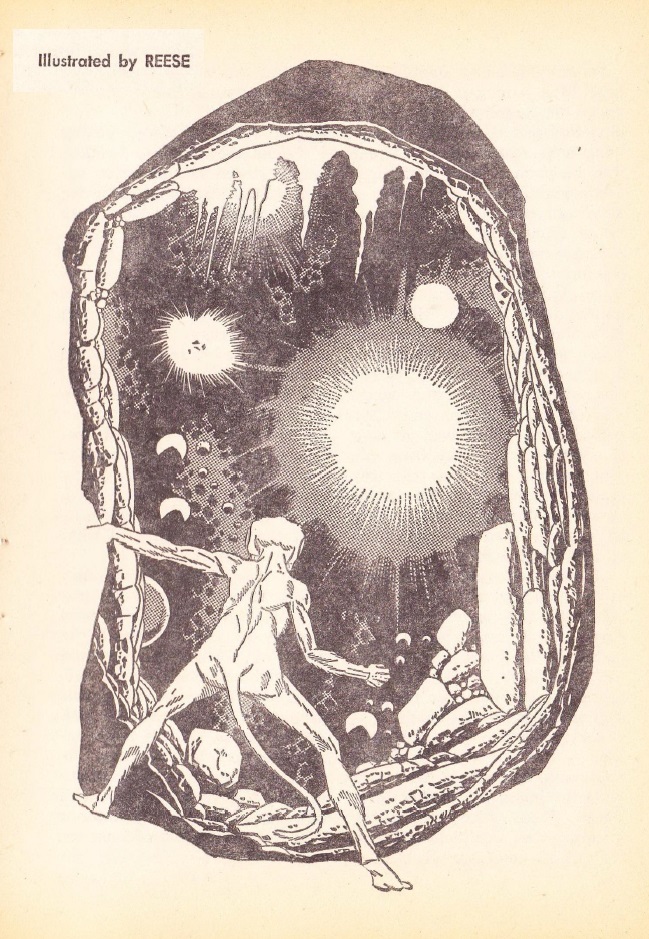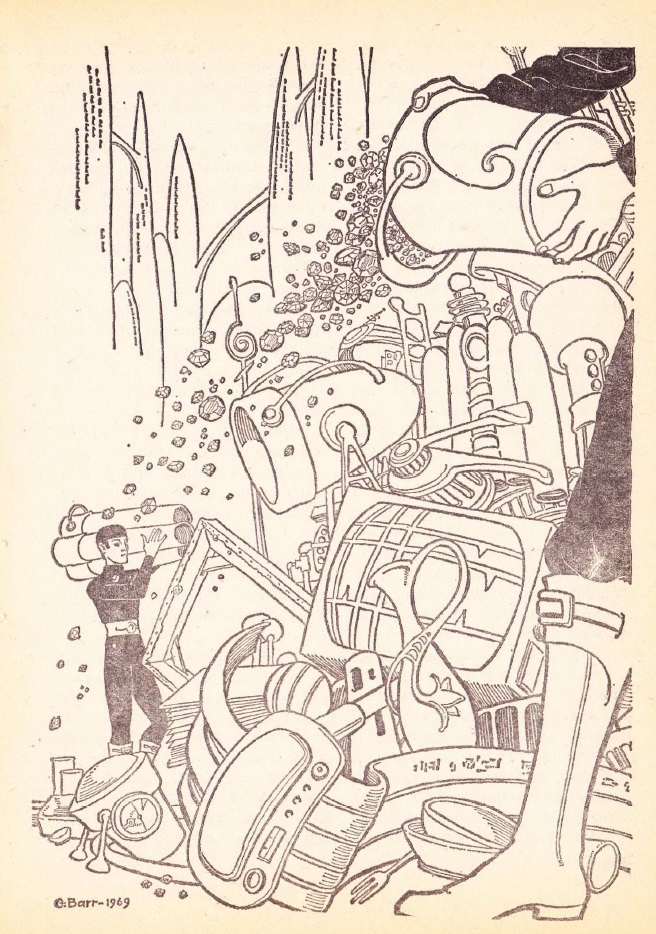
by Gideon Marcus
Around the World
Richard Nixon, 37th President of the United States, is back from a tour of Europe. All of his visits made headlines, particularly when he went to the Vatican and a couple hundred students held signs that said, "Nixon go home!"
Hey now—we don't want him either!
The Dick met with the "Jesus of the Franks", General DeGaulle, for a high profile religious summit. Our President failed to return with the next Ten Commandments nor a commitment to allow Britain into the European Community (much less France's return to NATO).
Nixon is now back in the States. Apparently, Jack Benny managed to buy more than a gallon of gas at Texaco since he made it all the way to Andrews Air Force Base to amuse the President upon his return. Well, maybe the air fare was on the country's dime.

One of the places Nixon did not stop, but sent a staffer in his stead, was the funeral of Israeli Prime Minister Levi Eshkol. The Jewish leader's death was rather a surprise, and his interim replacement is something of a dark horse: 70 year old foreign minister Golda Meir. She is the first woman leader of the Jewish state, and one of the few female national leaders this century. It is possible she will step down in favor of her party confederate Yigal Allon when he stands for the next regular election against conservative rival General Moshe Dayan.

Into the wild Blue/Black yonder
As I type this, Apollo 9 is currently in orbit, its crew practicing a series of maneuvers that will be duplicated on this summer's trip to the Moon. It's sort of like a Gemini training mission (two of the astronauts, Scott and McDivitt, are Gemini veterans) but with Apollo hardware. It is fitting, therefore, that the latest issue of Galaxy deals with space in almost all of its stories:

by Reese
Witch Hunt, James E. Gunn

by Adkins
Centuries after a nuclear apocalypse, the Earth's four billions reduced to just one hundred million, humanity lives in a patchwork of low-technology communities. There are the farmers, who make up the vast majority; the villagers who comprise a rude middle class; the Luddites, barbarians who plunder, mostly for fun; the arrogant Neo-Scientists, who enslave many so that a few may reconstruct the wisdom of the past; and the Empires—petty states whose influence extends no further than their capital regions.
And there are the witch-doctors, who use "magic" to heal and educate, and the pilgrims, who seek the truth. "Witch Hunt" is the tale of two such pilgrims, their tour of America's degraded communities, and a survey of their relative merits and lacks. Of course, the story reveals the truth they have been searching for.
There is more than a whiff of Silverberg's Nightwings serial here, and while the prose is not quite so beautiful, it is serviceable.
Four stars.
Beam Us Home, James Tiptree, Jr.
Hobie was a precocious child whose life was irrevocably influenced by Star Trek, though the TV show is never mentioned by name.
A successful teen and, later, frustrated serviceman, he can't shake the feeling that he is somehow separate from the human race. The story's conclusion bears much in common with that of "Witch Hunt". I wonder if putting thematically-similar stories together was deliberate or coincidental?
Something about this story reminds me a bit of the works in our Rediscovery anthologies, or perhaps a bit of the works in the fanzines. In particular, the focus on Trek and also the fact that the protagonist is a minor for much of the piece set it apart from many of the stories we encounter regularly. I had to check the byline to make sure it wasn't by Evelyn E. Smith, or Rosel George Brown, or Zenna Henderson, for example.
As a whole the story isn't bad, but unfortunately, Tiptree botches the end. Three stars.
How Like a God, Robert Bloch

by Reese
Pride goeth before a fall: Mok is an incorporeal being who refused to surrender his personality to the group; as a consequence, the divine Ser confines him to an alien, physical body and banishes him to a planet of primitives. There, Mok becomes a kind of Prometheus, elevating the aborigines' culture and technology. But is Mok a God…or a serpent in the garden?
Kind of a neat piece. I think it falls on the lower side of the three/four star divide.
Buckets of Diamonds, Clifford D. Simak

by Reese
Simak loves to write "pastoral science fiction" set in his stomping grounds of Minnesota, and so, "Buckets of Diamonds" reads a bit like The Andy Griffith Show meets The Twilight Zone. Drunk Uncle Charlie gets locked up in the pokey one day when he is found staggering down the street, an Old Master's canvas under one arm, and carrying a bucket of diamonds. Later, he disappears from jail and turns up driving a hovercar alongside a sour-faced alien…who presently encourages all of the citizenry to dispose of their technological gadgets!
All of this is much to the chagrin of Charlie's nephew-in-law, a local attorney who must sort the mess out.
Not much to this tale, which ultimately doesn't go anywhere, or when. Three stars.
Slave to Man, Sylvia Jacobs
Tony is an editor for one of those schlock-houses that produces "the sexies" (prurient pulps). One day, he notices he's getting a lot of torn off covers from returns that say "Help! Help! I am being held in bondage! I am only 15 years old!"
Who he finds when he seeks the poor soul out, and how said soul revolutionizes the sexies industry is both amusing and, perhaps, prescient.
Four stars.
And Now They Wake (Part 2 of 3), Keith Laumer

by Jack Gaughan
The saga continues of two immortal aliens destined for a final confrontation somewhere in 21st Century America. Last time, we learned that Gralgrathor had self-exiled from his stellar Federation to go native amongst medieval Vikings. His confederate, Lokrien, murdered 'Thor's wife and child to incentivize his return to galactic civilization.
In this installment, Lokrien, now fully healed from vicious scars he carried for decades, is looking for 'Thor, who now goes by the name of Grayle. Grayle, as you recall from last time, escaped from the Caine Island maximum security prison, where he had been languishing for over a century. Both immortals have assistants: Lokrien's is a mercenary cabbie who is efficient with his fists; Grayle has picked up a lovely woman named Anne who insists on helping him despite not knowing the whole story.
Meanwhile, an enormous whirlpool is growing in the middle Atlantic, generating hurricane force winds across the hemisphere. It seems to be powered by the newly online broadcast power plant on the Eastern seaboard. Attempts to shut down the plant are all thwarted by some unknown force. You can bet that the aliens are somehow involved, however…
Still interesting stuff. Four stars.
For Your Information: The Drowned Civilization, Willy Ley
This month's article is a potpourri dedicated to three questions: 1) how easy would it be for a planet to capture a new moon, 2) how would the Earth's land contours change should the ice caps melt, and 3) what kind of creature is the biblical zaphan?
Three stars.
There and back again
Well, that was rather fun! Nothing spectacular, but all in all, a rapid, enjoyable read. Galaxy remains my favorite of the monthlies, and I can't wait to see how the Laumer turns out. I am also happy to see that we're getting at least one woman writer each month again. The magazine was at its best when that was the case back in the '50s, and Sylvia Jacobs turned in one of my favorites of the issue.
Until next time…keep up to date with Nixon on Laugh-In, and science fiction on the Journey!

![[March 8, 1969] Around the Universe (April 1969 <i>Galaxy</i>)](https://galacticjourney.org/wp-content/uploads/2024/03/690308cover-519x372.jpg)


![[May 10, 1966] Rocky Jaunts (June 1966 <i>Galaxy</i>)](https://galacticjourney.org/wp-content/uploads/2021/05/660510cover-672x372.jpg)













